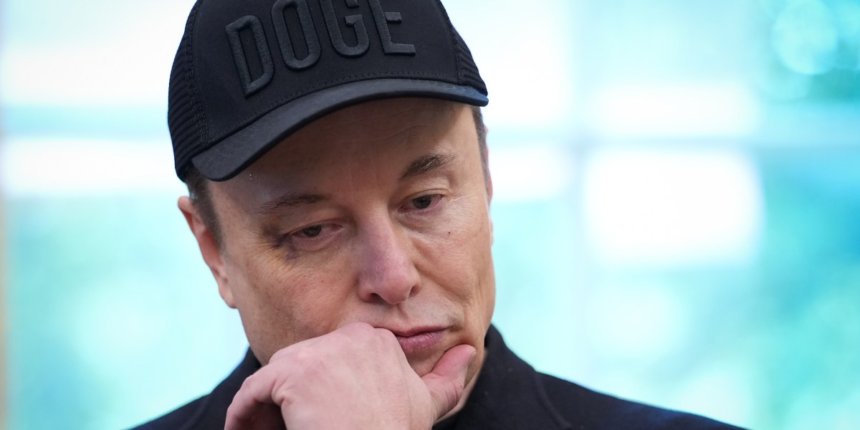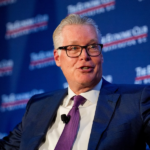Tesla is clearly dedicating resources to communicating with its individual retail investors and informing them about how to vote, independent activist investor Michael Levin told Fortune, a feat that is difficult to accomplish in the U.S. Given how Tesla pulled it off last year, this year’s vote to approve Musk’s new award isn’t nearly as in doubt as it was in 2024, he said. Plus, Tesla has the same playbook to work from this year.
“The result of 2024 gives a very strong clue about how 2025 will work out—and that passed with 72% of voters supporting it, and that’s pretty comfortable,” Levin said. “This year, it’s sort of a version of the same thing: A comp plan going forward with these insane, ambitious goals, and people are fine with that and don’t mind him being a trillionaire.”
“It’s not only the magnitude, it’s the way in which the pay package is sort of a ransom aimed at shareholders,” New York City Comptroller Brad Lander told Fortune. “It’s a megalomaniacal trip of bizarre proportions that is all about Elon’s ego and not about the financial health of the company or its stakeholders and shareholders.”
“If we don’t hold them accountable you’re going to have so many others who are going to try and follow suit,” Montoya said. “This is a precedent that could be damaging to our economy, not just today and tomorrow but in our children’s future.”
The Tesla meeting agenda includes investor votes on 14 proposals, but the two that are keenly relevant to Musk’s compensation include a proposal to approve his 2025 CEO performance award, and a second proposal that would include the creation of a special reserve of 208 million equity shares for Musk. The vote authorizing more shares will also replenish the equity pool of 60 million shares available for employees and directors that companies typically use to compensate executives.
“All the action is in those two proposals,” said Levin, who holds a small investment in Tesla and plans to oppose the pay proposals.
The Tesla board told investors the pay package is key to keeping Musk focused on Tesla and motivated to grow the company.
“In light of the AI talent wars, Tesla’s internal efforts to develop and expand its product offerings within the AI industry, the absence of a comprehensive plan to address the compensation that remains outstanding for Musk’s past performance, and the lack of any go-forward incentive to motivate Musk to keep his focus aimed at Tesla long enough to achieve meaningful results that will transform Tesla over the long term, we believe there is a pressing need to retain and incentivize Musk immediately,” the board told investors last month.
In their criticisms, pension funds and Democratic state fiduciaries are taking aim not only at the size of Musk’s potential pay package but the Tesla board, chaired by Robyn Denholm. Pension leaders have said Denholm and the board are letting investors down by failing to properly oversee and challenge Musk when needed and ensure that he stays focused on Tesla.
Still, some investors are planning to send a message to the board by voting against the three directors up for reelection this year: Ira Ehrenpreis, Joe Gebbia, and Kathleen Wilson-Thompson.
“This is one of those circumstances where somebody has to say, ‘Enough is enough,’” said Lierman.
Despite the organizing by pension funds, the battle to sway the vote is an uphill climb, although that is no reason not to speak out, noted Lierman. Tesla appears positioned to win approval of Musk’s new moonshot pay plan based on Musk’s ownership, the voting history of large institutional investors, and the company’s track record with individual holders.
According to FactSet, retail shareholders equate to approximately 34% of outstanding shares. Last year’s ratification vote saw 72% of all votes cast in approval of his pay, which excluded shares connected to Musk and his brother.
Still, Musk is unlikely to leave anything to chance, said Levin, given his ownership stake in Tesla.
And if Musk left Tesla it would be terrible for investors; the stock would likely immediately plummet. “Maybe it’s a risk this board doesn’t want to take,” said Levin. “But I think the cost of avoiding that risk is way too high—it’s a trillion dollars of equity.”









